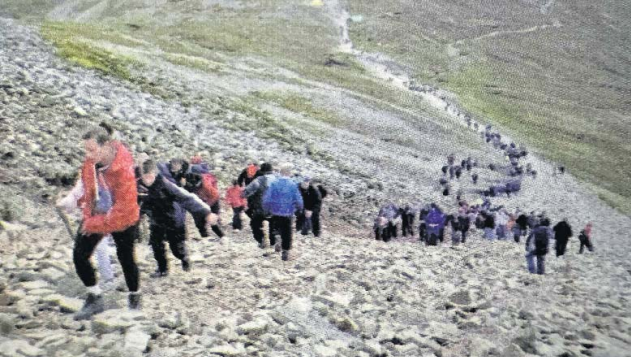BY the time the 1990s rolled around, Columban Priest Fr Frank Hoare had already spent years moving between Fiji’s islands, villages and parishes.
But this next chapter of his life, a few quiet years in Kinoya and Ba, was not about journeys across the sea or dramatic conversions.
It was about the smaller distances between priest and neighbour, work and rest, faith and fatigue.
Teaching psychology at the Pacific Regional Seminary by day, he lived among ordinary families at night.
His reflections from 1993 to 1995 show that holiness sometimes grew best in rented rooms over shared cups of yaqona or under the shade of a guava tree.
Neighbours and yaqona nights
On June 27, 1993, Fr Hoare rented a small house in Kinoya outside Suva ideal for combining his teaching duties with parish ministry.
The local mandali, a Hindi prayer group, kept gospel sharing alive among Indo-Fijian Catholics while a nearby catechist cultivated a small patch of dalo behind the house.
Fr Hoare recalls inviting neighbours for a Saturday night yaqona session — a kind of informal housewarming.
“I regretted the timing almost immediately,” he admitted.
He’s night stretched past midnight. The catechist, in charge of mixing the bowl, added yet another full basin of yaqona while Fr Hoare was talking to someone, leaving only a few guests to drink in slow rounds.
“My sleep time was disappearing.
“In exasperation, I shouted, “Talo! Serve it.”
The catechist jumped in surprise later explaining, “Father, you only need to ask. There’s no need to overcall me.”
Even small generosity could be fraught. A neighbouring teacher, often waking Fr Hoare before six in the morning to borrow bus fare, approached him one Saturday needing $300 for mats for a reguregu, a sudden funeral gathering.
Reluctantly, Fr Hoare lent $200 knowing it might never be returned.
“At least I won’t be disturbed early in the morning anymore.”
A landlady’s guavas
By May 1994, Fr Hoare had moved into a Fijian family’s home, renting a room in Kinoya.
The landlady, a widow with three children, welcomed him with quiet hospitality. Her youngest daughter, ever-watchful during breakfast, would shout “Enough!” whenever Fr Hoare reached for a second helping of marmalade.
One Saturday, while chatting over breakfast, the landlady admitted why weddings made her cry. “When I see the bride all radiant with joy, I think, ‘You don’t realise the problems and troubles that are waiting to ambush you!’”
The small front patch of guava trees provided modest income. “Yesterday I hugged the guava tree and said, ‘You are great! It is because of you that I can feed Father!’” she said.
In her devotion to both crop and guest, Fr Hoare said he found the quiet rhythms of gratitude and sustenance, where small labours nurtured both body and spirit.
Role plays and reconciliation
By May 1995, Fr Hoare’s ministry had expanded into intercultural workshops, this time in Ba parish.
Around 50 Fijians and Indo-Fijians gathered for Scripture input, discussions, and role plays designed to reveal self-stereotypes and other-stereotypes.
In one role play, a young married teacher confronted Fr Hoare, playing the role of a parishioner challenging the priest’s authority. The interaction escalated with tense realism, until his wife in the audience began to cry, mistaking the enactment for reality.
“That moment,” Fr Hoare observed, “opened the door to genuine marriage counselling.”
Fr Haore said sessions that followed were unpredictable, taking their own course, yet ended with reconciliation and renewed understanding.
Savenaca on Pilgrimage
July 1995 brought Fr Hoare to Ireland, accompanying Savenaca Momo, a Fijian lay missionary.
Savenaca, the gentle giant from Nakoroboya, had earned local fame playing rugby and cycling to the Curragh racetrack.
On a four-day pilgrimage from Knock to Croagh Patrick, Savenaca’s stamina and kindness shone. On the steep, unstable slopes near the summit, he helped elderly pilgrims avoid slips and falls.
At the peak, overlooking the hundred islands below, he stretched his long arms and said simply, “I could sleep here now.”
When approached by Irish television, Savenaca joked, “St Patrick came to Ireland and began to convert the people to Christianity. I have come to finish the job!”
Lessons from listening
Sometimes it feels like Fiji’s faith has become louder than it needs to be. There are so many voices, pastors, prophets, church leaders, all telling us what to do, how much to give, when to come, how to pray.
Some speak as if holiness can be measured by attendance or the size of a tithe envelope. And if you don’t give enough, or if you miss a Sunday, it’s as if your faith has failed.
But maybe it’s time we remembered that our relationship with God isn’t something we perform, it’s something we live. It’s in how we treat people, how we forgive, how we listen, how we share what little we have. Faith doesn’t need to be shouted from a pulpit or proven through an offering. It breathes quietly in the way we care for each other.
Fr Hoare seemed to understand that. His life wasn’t about demanding devotion but about showing presence. He saw that God moves in small, unrecorded acts, in patience with others, in laughter over tea, in the courage to show up even when no one notices.
Maybe that’s what Fiji needs to remember now. We don’t have to trade our faith for noise, or our peace for performance. The divine doesn’t only live in churches; it lives in kitchens, buses, and farms; anywhere hearts stay open.



